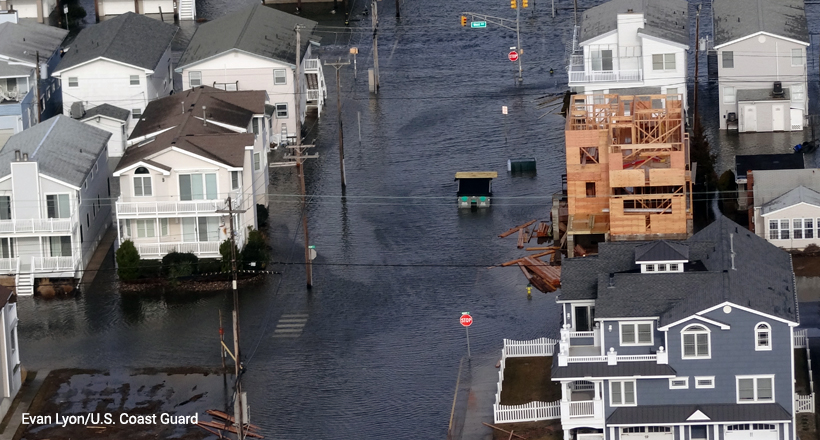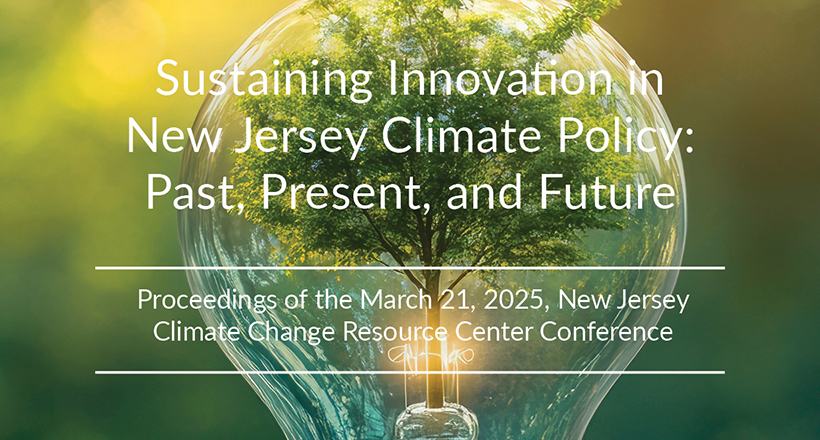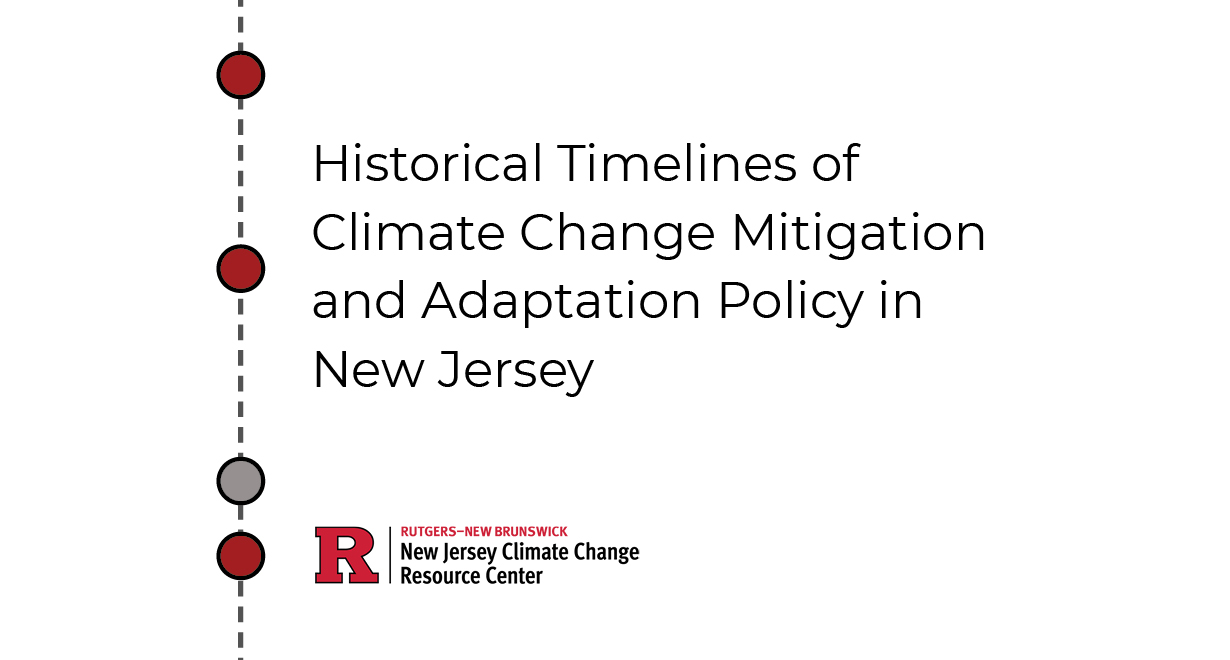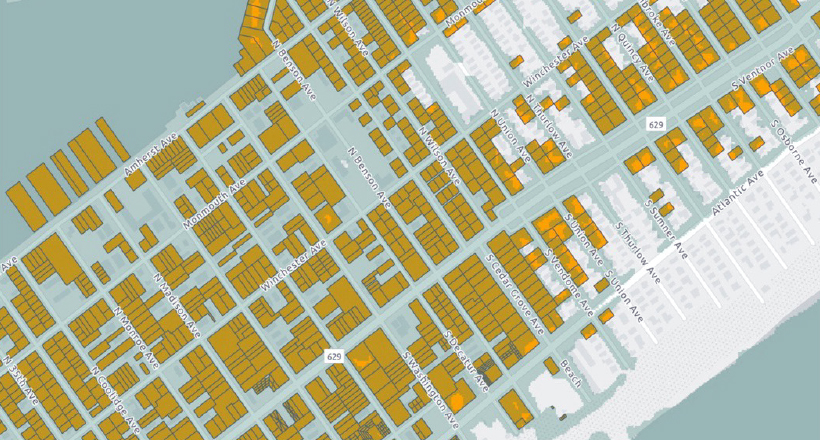Our Latest Work
Current Initiatives
The CCRC is involved in a wide range of projects, ranging from the development of planning tools and on-the-ground research to supporting community-led projects to reduce emissions and much more. Learn more about our latest projects below.
New Jersey’s Rising Seas and Changing Coastal Storms: Report of the 2025 Science and Technical Advisory Panel
This report presents the most recent climate science needed to inform efforts to increase the resilience of New Jersey’s people, places, and assets to regional sea-level rise, changing coastal storms, and the resulting flood risk.
State of the Climate: New Jersey
The latest report in our annual “State of the Climate” series provides an overview of outstanding 2024 weather events, followed by an in-depth analysis of historical climate data and future projections for New Jersey.
The authors focus on temperature, sea-level rise, precipitation, and extreme events, including a discussion of drought projections, extreme rainfall events, and New Jersey’s progress toward its emission reduction goals.
New Jersey Nature-Based Solutions: Planning, Implementation, and Monitoring Reference Guide
Nature-based solutions (NBS) can help mitigate certain natural hazards in New Jersey while also offering direct benefits to people and nature. This document compiles research, resources, and best practices from public and private entities, academics, and on-the-ground subject matter experts regarding the planning, implementation, and monitoring of NBS in New Jersey. It is intended to be a one-stop-shop to guide readers through the opportunities and challenges associated with NBS planning, implementation and monitoring. The document can be used by anyone seeking funding for an NBS, anyone who is managing an NBS project, or anyone overseeing the hiring of contractors to carry out an NBS project.
Sustaining Innovation in New Jersey Climate Policy: Past, Present, and Future
Proceedings of the March 21, 2025, New Jersey Climate Change Resource Center Conference
On March 21, 2025, the New Jersey Climate Change Resource Center at Rutgers University hosted a day-long conference titled “Sustaining Innovation in New Jersey Climate Policy: Past, Present and Future.” Approximately 200 New Jersey leaders came together to engage in a dialogue about the state’s climate change goals and policies, challenges to reaching those goals, relevant lessons that can be learned from outside New Jersey, and opportunities that New Jersey can explore to further advance its efforts to reduce greenhouse gas emissions and adapt to changing climate conditions. These proceedings provide a synthesis of ideas presented, generated, and discussed to inform ongoing efforts in New Jersey to advance sound climate change policy.
Historical Timelines of Climate Change Mitigation and Adaptation Policy in New Jersey
This document provides historical timelines with respect to New Jersey’s efforts to reduce greenhouse gas emissions (i.e., climate change mitigation) as well as reduce its vulnerability to climate change impacts (i.e., climate change adaptation). They provide a window into the evolution of innovations in New Jersey climate change policy. For context, the report juxtaposes these timelines with seminal United States climate change policy mitigation and adaptation actions. These timelines were originally developed and shared with participants at the March 21, 2025, conference Sustaining Innovation in New Jersey Climate Policy: Past, Present and Future hosted by the New Jersey Climate Change Resource Center (NJCCRC) at Rutgers University.
Current and Future Flood Exposure to New Jersey Properties and Associated Assessed Property Value at Risk
People and property are at risk from current and future flood related hazards in New Jersey. This report uses the state MOD-IV property tax assessment and parcel dataset to analyze the acreage of land parcels and the economic value of the structures potentially at risk from current and future flood scenarios in New Jersey. All flood scenarios show a disproportionate potential impact to residential properties compared to other property classes. A considerable number of properties and structures currently reside in the FEMA 1% and 0.2% flood hazard areas and at risk from flooding events already occurring in the state and at increasing frequency and intensity. While there are relatively smaller impacts in the coastal area due to regularly occurring nuisance flooding, sea-level rise estimates for the upper end of the likely range project up to 2.1 feet of sea-level rise could occur by 2050 and thus properties or structures could be fully or partially inundated by then, resulting in permanent disruption to these areas. Projecting out to 2100, the same models estimate up to 5 feet of sea-level rise which is shown to have much greater impact to coastal areas of the state, resulting in the potential permanent loss of properties and structures that could have substantial impacts to these communities.








